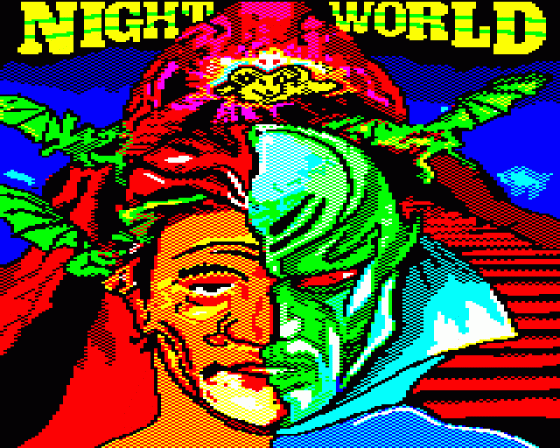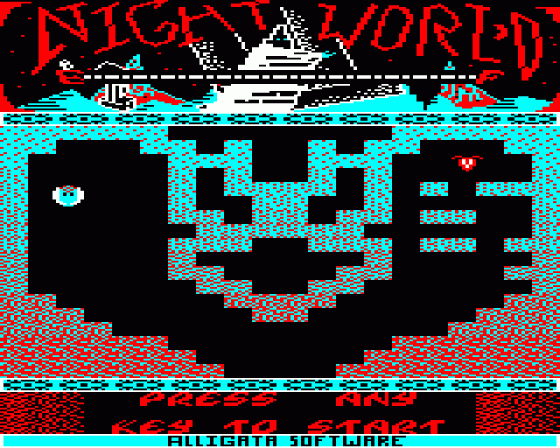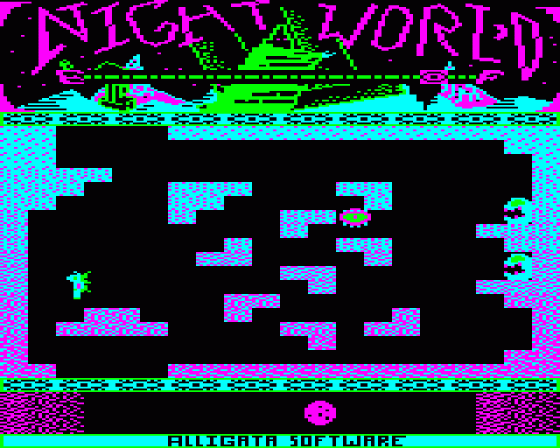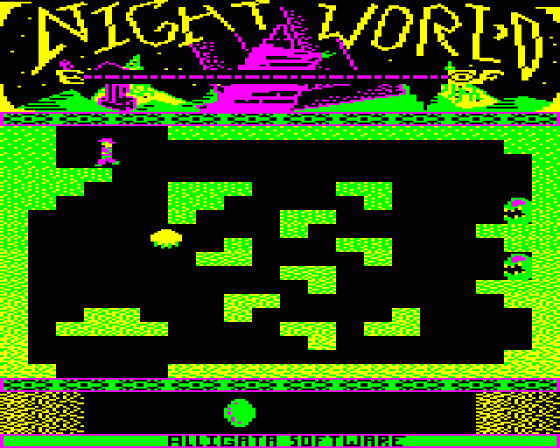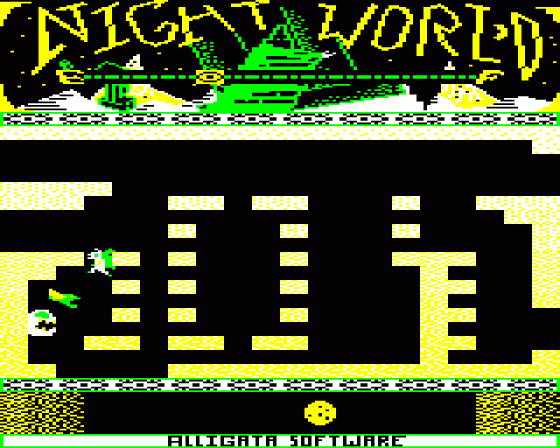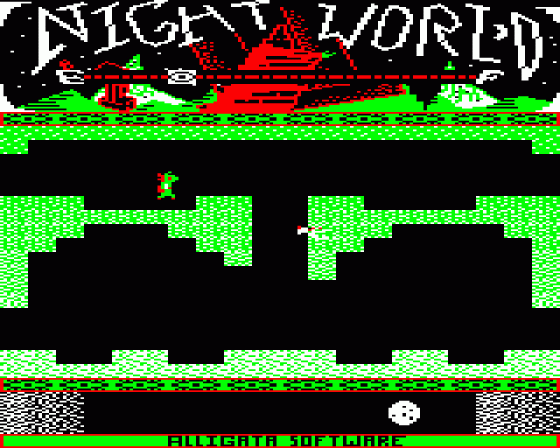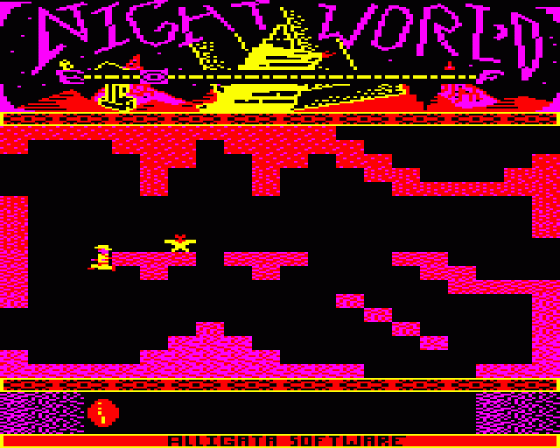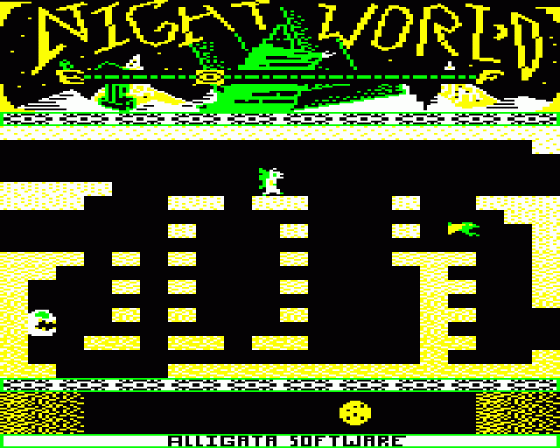Other Reviews Of Nightworld For The BBC/Electron
Nightworld (Alligata)
A review by David Richards (Electron User)
Nightworld (Alligata)
Golden Fleeced?
Nightworld (Alligata)
It's hard being a gargoyle
Night World (Alligata)
A review by R.S. (Home Computing Weekly)
Nightworld (Alligata)
A review by Dave E (Everygamegoing)


 1st January 2008
1st January 2008
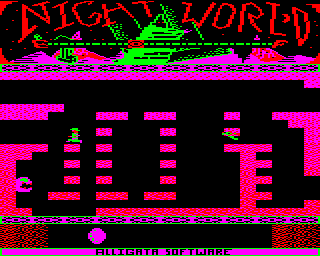 This tempo pervades the game as a whole and actually seems to be the way the game was designed, i.e. to perpetually appear to run in slow motion! With no clear objective, and the seemingly impossible layout of the third room, this results in quite unchallenging gameplay. Moreover, the lack of clear instructions and the idyllic way all the foes glide around tends to evoke feelings of utter perplexity and inevitably frustration. Why exactly is Lee half-man half-beast? What is the purpose of the ziggeraut? Why the eye on the bridge? What exactly are you meant to be doing?!
This tempo pervades the game as a whole and actually seems to be the way the game was designed, i.e. to perpetually appear to run in slow motion! With no clear objective, and the seemingly impossible layout of the third room, this results in quite unchallenging gameplay. Moreover, the lack of clear instructions and the idyllic way all the foes glide around tends to evoke feelings of utter perplexity and inevitably frustration. Why exactly is Lee half-man half-beast? What is the purpose of the ziggeraut? Why the eye on the bridge? What exactly are you meant to be doing?!










